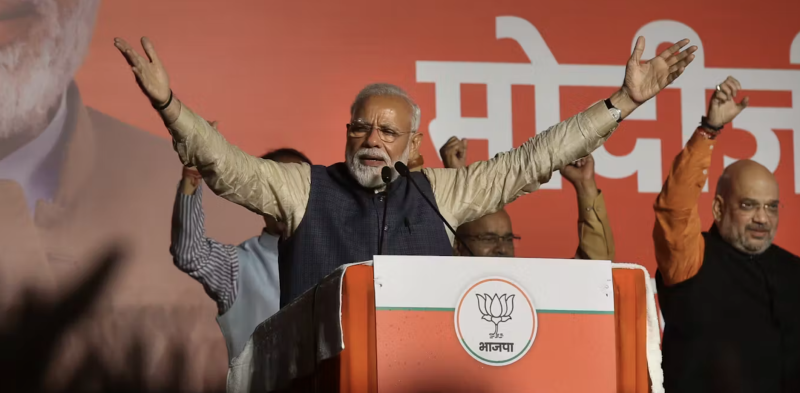
The Prime Minister Narendra Modi walks into the Ram Mandir in Ayodhya to consecrate the temple that has been at the forefront of religious and communal conflict in India. It is a moment that shall be remembered as a landmark event in the city’s history, an event that marks the peak of the Hindu nationalism renaissance in India. The Bharatiya Janata Party (BJP) is now even more popular as PM Modi aims for 400 seats in the Lok Sabha, 128 more than the required majority to govern.
However, 4 months after the Inauguration of Ram Mandir, BJP loses its Ayodhya seat, and finishes at a tally of 240, nearly three dozen short of the number required for a simple majority. This comes against the backdrop of several allegations of electoral manipulation, biasedness of the election commission and political victimisation against the incumbent BJP’s opposition. In the light of this, what might explain the shocking outcome? Was it the pushback by the Indian voter against Modi’s very capitalistic economic policy, or is something else at play?
For now, PM Modi was sworn in as the Prime Minister for the third successive term as the BJP formed a coalition government with its allies in the National Democratic Alliance (NDA). This entails that PM Modi would have to work in a consensus government with a strong opposition in the Parliament. At face-value, this arrangement would definitely stop, if not revert the overpowering force of Hindutva, indirectly strengthening the Indian democracy. PM Modi has never previously worked in a coalition government whether it was in his two terms as the Premier or his preceding tenure as the Chief Minister of Gujarat. This new arrangement will indeed be a test for a leader as he works with an independent Supreme Court and a bureaucracy that now may think that the boss is not permanent.
While it is hard to hypothesise whether this trend will follow into the next election, whenever it might be, it is imperative to look at the big picture of the electoral data. Despite losing several seats this time, an eagle eye view of the election shows that the total vote share of BJP has barely changed. With exceptions in a few districts, the overall BJP vote has stayed intact. Moreover, this election cannot be categorised as something that represents a wave of anti-Modi sentiment. At best, there are fluctuations in a few states with BJP even making substantial gains in some. This pushback by the voter, as it has been called, has specifically not made a dent in BJP’s vote bank.
With that in mind, it would not be sincere to not assign credit to the way the opposition organized itself ever since last year. India, like several other parliamentary democracies, elects its parliamentarians through the first past the post system with the candidate with the plurality of votes winning the constituency seat.
Less than a year ago, the 40 opposition parties formed a united electoral alliance to counter what they termed the unconstitutional direction the country was headed. The formation of this alliance called the Indian National Development Inclusive Alliance (INDIA) was spearheaded by Rahul Gandhi of the Indian National Congress (INC) along with several partners including Arvind Kejriwal of Aam Aadmi Party (AAP). The strength of this alliance is what plausibly explains the rollback of the BJP power as the joint candidates of the alliance might be able to gain the most amount of votes in a given seat. This, coupled with Rahul Gandhi’s Justice March across India termed “Bharat Jodo Nyay Yatra,” allowed him to earn back space for INC within the Indian electorate. Facing criticism of being a product of dynastic politics, this march allowed him to, as it is termed, earn his inheritance.
In giving credit to the Indian opposition, one must concede that this election did not dismantle the BJP’s support base in India. However, the tangible outcome is that despite maintaining that support, BJP has lost substantial authoritative autonomy over governance, legislation and the ability to amend the constitution.
The outcome did empower democracy.

